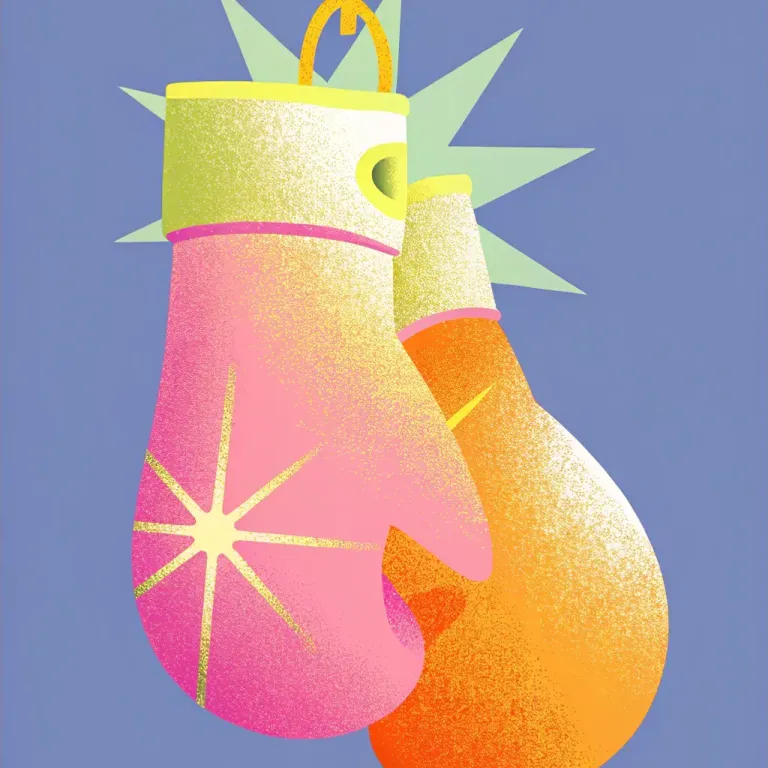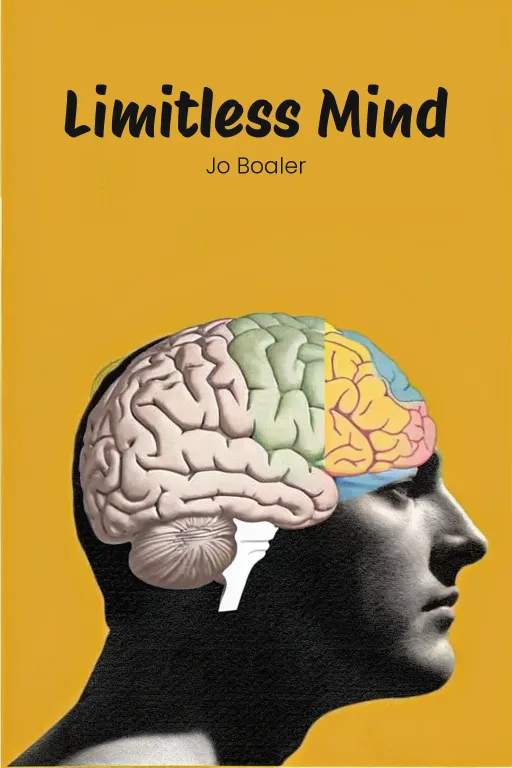
Fearless Hustle: Smarter Moves, Bigger Wins
Podcast by Beta You with Alex and Michelle
Cutting-Edge Lessons and Hard-Earned Advice on Making a Comeback
Fearless Hustle: Smarter Moves, Bigger Wins
Part 1
Alex: Hey everyone, welcome back! Today we're talking about Curtis “50 Cent” Jackson. Rapper, actor, businessman, and, believe it or not, a guru on how to hustle and grow. His book, “Hustle Harder, Hustle Smarter”, is packed with life lessons, showing how he turned tough times into massive success. Michelle: Yeah, and let's be honest, Alex—the guy's story is unreal. From hustling on the streets in Queens to building a huge empire, he’s seen it all. But don’t worry; we aren’t just here to admire 50 Cent. We’re going to break down the good, the bad, and maybe even some questionable parts of his philosophy. Alex: Exactly. The main idea of the book is resilience—turning fear into motivation, turning failures into learning experiences, and using discipline to shape your future. It’s all about embracing growth, staying true to yourself, and hustling with a clear goal. Michelle: And we will be diving into the three main ideas that 50 Cent thinks are key to success. First, we'll discuss fearlessness. It highlights facing challenges head-on, like steel being forged. Alex: Then, we'll move on to the hustle, which Jackson believes is the most important thing for getting ahead. But it’s not just about working hard without thinking; it’s about making smart, planned moves. Michelle: And finally, adaptation. He always talks about paying attention to what’s happening around you and being able to change plans to stay relevant, like using GPS when life throws you a detour. Alex: So, get ready to explore these three ideas with us—fearlessness, hustle, and adaptation—all tied together through 50 Cent's incredible personal journey. Let’s get started!
Fearlessness and Resilience
Part 2
Alex: Okay, let's dive into fearlessness, which is, like, “the” central theme in 50 Cent's book. But the thing that really struck me is how he defines it. It's not the absence of fear, which is what most people think. Instead, it's about acknowledging the fear and still choosing to act. He sees it as a skill, something you develop over time. Michelle: Yeah, and his training ground for that skill was pretty brutal. Can you imagine being eight years old, losing your mom, and suddenly having to survive on the streets? That kind of trauma could crush anyone, but he turned it into, like, fuel. Alex: Exactly! He saw those streets as a testing ground. He didn't break; he reshaped himself. And that mindset shift was key. He chose to see challenges instead of insurmountable problems. He learned to thrive in chaos instead of being swallowed by it. Michelle: Right, but I wonder, what makes someone choose that perspective? Most kids don't need to develop that level of resilience. But then he starts boxing and confronts fear in its purest form–literally facing a fist coming at you, and deciding not to back down. Alex: Totally! That boxing ring was like, a metaphor for life. He learned that it's not about avoiding the hits, it's about how you handle them. Do you panic, or do you strategize? Those lessons taught him to face fear head-on, in the ring and in life. Michelle: And that's a lesson we can all use, right? We all face metaphorical punches–rejection, failure, whatever. So, fear is this opponent swinging at you, and 50 Cent’s response, “If I don’t like being hit, then I must do something about it,” is so simple and practical, it's almost genius. Alex: Exactly, it’s about action. Anticipate the next blow, defend yourself, and strike back at the right moment. It's about staying grounded and effective, then his ventures and artistry. Because he is controlling the situation, and responding rather than being defined by it. Michelle: But, hang on, it almost sounds superhuman. He's not saying the fear disappears, is he? Because most of us just freeze when faced with a major problem. Alex: No, no way. He embraces fear because it reminds you that you’re in a high-stakes, and therefore grow. He believes that the enemy is actually allowing the fear to inhibit your action. His near-death experience, being shot nine times, is a great example of this. Michelle: Nine bullets! I mean, that can knock you out physically and mentally. But there he is in a hospital bed, deciding, "Okay, I survived. What's next?" That's some serious audacity when you turn trauma into motivation. Alex: Absolutely! He used those scars as proof of survival rather than vulnerability. He felt like he already experienced everything he was scared of, so what was left to fear? That mindset empowered him to pursue music, TV, business, everything with zero hesitation. Michelle: So, stripping away the fear of failure, or even death, opens up the world. Opportunities become clearer, and he can adapt. He's not just surviving; he's thriving. Right? Alex: Exactly! So, his experience is like, a blueprint for building fearlessness. He gives you tangible methods, like reframing discomfort as growth, reflecting on pain, understanding fear as universal. Not about eliminating but working with it. Michelle: Which reminds me of Maria das Graças Foster, the former Petrobras CEO. Here’s a woman who faced so much fear and systemic challenges. And she rose up from the favelas of Rio to lead a major corporation. That’s next-level resilience. Alex: Absolutely. Her story reflects 50 Cent’s principles. Through hard work, overcoming setbacks, she claims success. Michelle: So, fear is this universal test. You can’t avoid it, but you can decide how you respond. They are testament of resilience and strategy and action. Alex: Exactly, Michelle! The key is, fear will be present whether in a ring or a meeting room. If we use that fear for energy and clarity, it won't hold us back, propelling us forward.
The Hustler's Mentality
Part 3
Alex: So that gets us to the next big idea: fearlessness and resilience as foundational to adopting a hustler's mentality. Let’s dive into "The Hustler’s Mentality." It's essentially the core of 50 Cent’s philosophy. He's not talking about just grinding non-stop, but about effort that’s really focused and intentional. The way Jackson sees it, hustling is about working smarter, not just harder, and never letting excuses or setbacks derail you. Michelle: That's a pretty bold new take, right? I mean, “hustle” comes with a lot of baggage. It can make you think of everything from con artists to just complete burnout. Does he actually address those negative images? Alex: Absolutely, he does. Jackson really reclaims the word, going back to its roots, and presents hustle as a core principle of ambition and being adaptable. For him, it's got nothing to do with where you live, or your background, or what job you do. It’s about waking up every day determined to make progress. He argues whether you're born with advantages, or start with nothing like he did in Queens, hustle is the great equalizer. Even people who are handed everything won’t be able to hold onto it unless they hustle. Michelle: That really hits home, especially thinking about those who peak early and then fade away. You can’t just coast forever. But let's keep this real. Does he give us some solid examples to back up this big idea of hustle being universal? Alex: He does! One example that really stands out is Maria das Graças Foster. She grew up in the favelas of Rio de Janeiro, dealing with both poverty and sexism. Jackson points to her as the perfect example that the hustler’s mentality isn’t just about surviving, but about really thriving, even when everything seems stacked against you. From selling scrap metal to becoming the CEO of Petrobras – Brazil’s biggest oil and gas company – Foster's story is all about hustle at its finest. Michelle: Wait a second. Let me just make sure I’ve got this right. We're talking about a woman in a very male-dominated industry, in a country where being a woman in power is already tough enough, and she came from the favelas? That’s not just climbing the ladder, that's scaling Everest without any oxygen! Alex: Exactly! And what makes her story so powerful is her sheer determination. Foster didn’t shy away from the challenges. She just tackled them head-on, working harder, smarter, and often outmaneuvering those who doubted her. She was known for getting in early and staying late – consistency was her secret weapon. Michelle: But it’s not just about putting in the hours, is it? I mean, hustling isn’t just about working yourself to death. Jackson talks a lot about being efficient and strategic. Does Foster's story show that as well? Alex: For sure, and you're right on the money. It's not about glorifying being exhausted. It's about putting in effort where it counts. Foster's rise wasn't based on luck. It was strategic. She was constantly adapting, learning new skills, and positioning herself for opportunities. It fits perfectly with Jackson’s idea of building momentum instead of just running around in circles. Michelle: So, she basically combined toughness with smarts. And, in a way, it sounds like her approach mirrored Jackson’s own trajectory: proving herself in unconventional ways. Didn't Jackson turn lots of apparent "no's" into opportunities? Alex: Absolutely, Michelle. Jackson turns roadblocks into stepping stones. Look at what he did with Vitamin Water. He didn’t just promote it; he got equity in the company, turning a short-term deal into long-term wealth. That’s the same strategy Foster used: thinking beyond the immediate gain and setting herself up for long-term impact. Michelle: That makes total sense. But you know, hustle at this level has to come with a cost. When you put that kind of energy and focus into smashing barriers, something's gotta give, right? Jackson definitely makes it clear that hustling isn’t for the faint of heart. Alex: Exactly, and that’s where you need to be self-aware. Jackson emphasizes knowing what sacrifices are worth it and what aren’t. A hustler has to be strategic, not reckless. He really stresses the importance of focusing your energy and building a good support system. Michelle: Speaking of support, his point about surrounding yourself with the right people is so important. You could be the most hardworking person in the world, but if your “crew” is constantly dragging you down, no amount of hustle's going to get you anywhere. Alex: Exactly. Jackson talks about this natural filtering process that happens when you start embracing the hustler’s mentality. Some relationships just won’t make it, but others – those based on mutual respect and shared goals – will be essential. It’s about aligning yourself with people who push you to be better. Foster did that too. Michelle: And that’s great advice, no matter what you’re doing. Whether you’re climbing the corporate ladder, starting a creative project, or just trying to improve yourself. But here's the tricky part: how do you keep that drive to succeed in balance with taking care of yourself? How do you avoid burnout, or becoming some kind of work-obsessed robot, you know? Alex: That’s a great question. Jackson tackles that by redefining hustle. Rather than seeing it as endless grinding, he encourages us to view it as a dynamic mindset. It’s about having clear goals, putting in consistent effort, and taking calculated risks – not just throwing hours at a problem without any real direction. He basically says, success isn’t just about how much you hustle, but about how smart you hustle. Michelle: That really makes sense – especially the part about being adaptable. The old-school kind of hustle often ignored flexibility, but Jackson sees it like a chess match, where adapting beats brute force every time. Alex: Exactly, Michelle. And if you think about it, this adaptability makes hustle a universal approach. Anyone can adapt it to their own situation. Whether you’re navigating the streets or a corporate boardroom, the principle is the same: a commitment to growth, driven by being tough and staying focused. Michelle: So, in short, hustle isn’t just spinning your wheels for no reason. It’s about making the journey intentional, focused, and meaningful. That’s a redefinition I can totally get behind.
Adaptation and Evolution
Part 4
Alex: So, that mindset directly feeds into our third core area: “Adaptation and Evolution,” because hustling “really” means strategically adapting to whatever comes your way. This is where Jackson’s brilliance “really” shines. In this section, we explore how he shifted between industries, saw cultural shifts coming, and “really” leaned into reinventing himself to stay relevant and successful. We start with his business evolution, then look at the big cultural changes in hip-hop, and wrap up with some lessons on self-reinvention. There's a lot to unpack, Michelle. Michelle: You're not kidding. So let’s kick off with his business moves, shall we? I’m assuming this is where we get to the Vitamin Water saga? That deal’s practically legendary now—like a modern gold rush, except 50 Cent was smart enough to bring the pickaxe. Alex: Exactly, and what’s so captivating about the Vitamin Water story is how incredibly forward-thinking he was. Back in the early 2000s, nearly all celebrities were doing traditional endorsement deals. You know, quick cash for a bit of promotion. Jackson saw that model was failing. So, instead of just grabbing a one-time check, he negotiated for equity in Glacéau, which is the parent company of Vitamin Water, really positioning himself as more than just a face. Michelle: Which wasn’t just luck, right? He noticed the shift toward health-consciousness before it “really” exploded. I mean, back then, soda companies owned the beverage market. Nobody was “really” betting on fortified water. Alex: Spot on. Jackson recognized this move towards wellness and realized his audience—largely young, ambitious types—would be into a product that fit with his own disciplined, fitness-focused brand. He wasn’t just pushing a brand; he turned Formula 50, his Vitamin Water flavor, into an extension of who he was. Authenticity was key. Michelle: That's what “really” grabs me—the authenticity. Because let’s be honest, most celebrity endorsements feel like straight-up cash grabs. But Jackson tied his brand to the product so seamlessly that it felt natural. He wasn’t just selling it; he was living it. Alex: Which worked wonders! When Coca-Cola bought Glacéau in 2007 for $4.1 billion, Jackson walked away with around $100 million, pre-tax. That deal didn’t just make money; it changed how artists and influencers thought about what they could do in business. It proved they could move beyond just transactional deals to actually investing in equity. Michelle: He basically rewrote the playbook for artists. Instead of just being the pretty face of a product, he put himself right behind it, driving its success. But let’s be real, how much of this was gut feeling versus a calculated plan? Did he “really” know it would blow up this big, or was it simply an educated leap of faith? Alex: I think it was a mix of both. He saw the potential in the growing health market and took a calculated risk, yeah. But what “really” stands out is his willingness to learn. He talked to the executives, studied the market, and proved he wasn’t just a musician trying to dabble in business—he was an entrepreneur who understood his audience. Not just luck, it was preparation meeting an opportunity. Michelle: Absolutely. And the lessons here are useful in so many areas. Equity over endorsements. Think long-term, not just a quick payout. It’s a principle anyone can use, even if the stakes aren’t in the millions. Alex: Exactly. And his focus on understanding the market, staying in step with cultural trends. Know where the world’s headed, and position yourself accordingly. Michelle: So the Vitamin Water deal wasn’t just about making money; it was a blueprint for strategic evolution. But let’s shift gears. You mentioned how he also evolved with the cultural currents in hip-hop. That feels like a whole different ballgame—where staying relevant has got to be even harder. Alex: Oh, for sure. Hip-hop is incredibly dynamic. Jackson highlights how much it values raw, authentic stories, often favoring voices that come from struggle and hardship. Early on in his career, those were his strengths. His near-death, his background—basically, it made him a symbol of resilience and someone fans could “really” connect with. Michelle: But success kind of messes with that, doesn’t it? I’ve noticed that when artists “make it,” audiences sometimes feel disconnected. It's like, how can you rap about struggle when you're living in a mansion? Alex: And Jackson saw this happening to him. He realized that hip-hop often gravitates to what's raw and “damaged,” as he puts it. When you’re polished, you risk losing that connection with your core audience. But instead of holding onto the past, he evolved. He understood that his original fans were growing up, too, and so their priorities were shifting. That's where Power came to the stage. Michelle: Power, yeah, that was genius. He tapped into this audience maturing right alongside him. Power wasn’t just entertainment—it was a deep dive into things like betrayal, ambition, survival… but on a completely different level than his music. Alex: Exactly. He expanded his storytelling into a format that spoke to his audience’s evolving needs. He wasn’t trying to compete with younger artists who embodied the rawness he used to, but creating a niche where his experience and perspective were valued. Michelle: Which leads to another big lesson: diversify your identity. Jackson isn't just “50 Cent the rapper.” He’s an entrepreneur, he’s an actor, a storyteller. He proves that staying in one lane is a “really” quick path to becoming irrelevant. Alex: Yes, and he adds to that by pinpointing cultural cycles within the industry. He points out that every generation brings its own wave of creatives, and the only way to stay relevant is to be respectful and adapt to those cycles while also carving out your own space. Michelle: So, it’s a balancing act—evolving but staying true to yourself. Here’s a good example: think about people who just cling to outdated methods in their careers because “that's how I've always done things." That kind of stagnation is like career kryptonite. Alex: Exactly! That’s why Jackson stresses continuous reinvention. He doesn’t see success as a single mountain you climb once, but as a series of mountains, each calling for new skills and perspectives. Whether you’re pivoting into a new industry, recognizing when a narrative no longer fits, or just expanding your skill set, it’s all about keeping one step ahead of change. Michelle: And honestly, it’s pretty inspiring to hear this from someone with Jackson’s background. This message is not coming from some privileged background—it’s coming from someone who’s had to adapt countless times to survive and thrive. Alex: Exactly. If you take away one thing from this section, it should be this: success isn’t a fixed point. Adapting isn’t optional—it’s how you stay in the game.
Conclusion
Part 5
Alex: So, to sum it all up, “Hustle Harder, Hustle Smarter” is a really honest guide on how to deal with fear, build resilience, and, you know, keep growing. Curtis Jackson definitely doesn't try to make it sound easy. It's hard work, it demands a lot, and it can be pretty relentless. But he shows us how to turn that fear into something that drives us, how to make "hustle" mean focused effort, and that being able to adapt is the key to staying relevant no matter what comes our way. Michelle: Exactly, and what really got me was how he emphasizes balance. It's not about working yourself to death or just acting without thinking. It's more about being strategic, making smart choices, and being fearless when it really matters. I think that's something that can speak to anyone, no matter where they're coming from. Alex: Totally. Jackson's lessons—turning fear into action, figuring out how to overcome setbacks, and growing through change—they're for anyone who's trying to be successful, no matter where they start. His ideas remind us that the road to growth isn't ever a straight line, but with resilience and a good plan, it's always possible to get there. Michelle: So, here's what we want you to think about: What does "hustling smarter" look like for you? Where can you be more flexible? Where can you face your fears head-on? and How can you “really” take control of your own journey? I mean, “really” challenge yourself to think about what success means to you, because you're the one writing that story.









